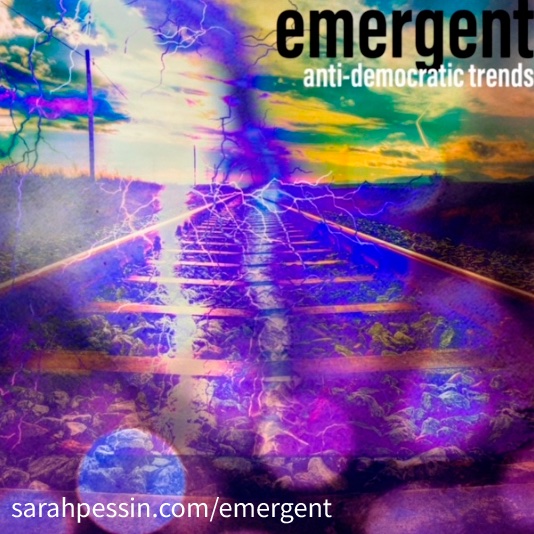A quick fact sheet.
Julius Evola (1898-1974) is an Italian-Right anti-liberal with a penchant for the transcendent. Steve Bannon likes this guy a lot.
Note: I explore thinkers based on one or both of two criteria: Their anti-democracy ideas are (1) in the public record (publications, talks, credible interviews, etc.) and/or (2) being referenced (described, analyzed, etc.) in credible scholarship or news sources as actively influencing contemporary anti-democracy efforts. While I myself find anti-democracy dangerous, it does not follow that someone who explores anti-democracy is dangerous: It is possible that they are or that they are not; but regardless of their intentions, it is possible that their ideas generate dangerous possibilities that they did not envision.
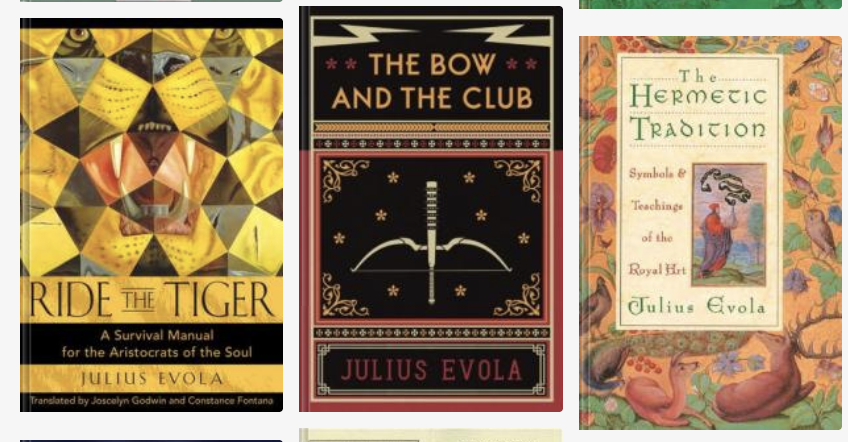
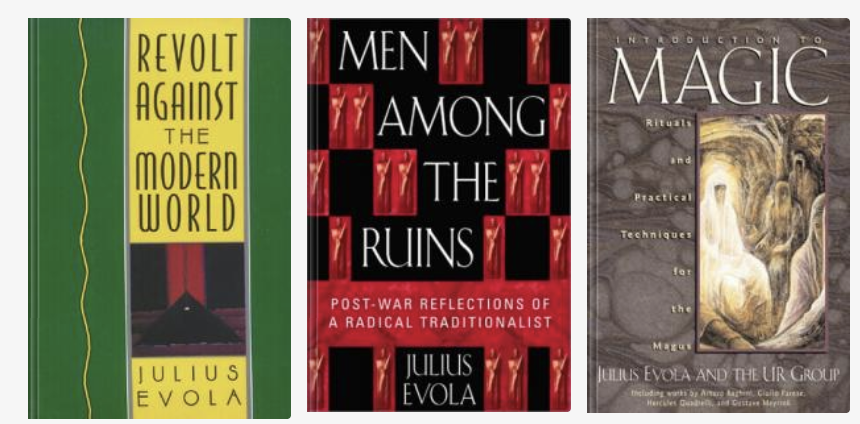
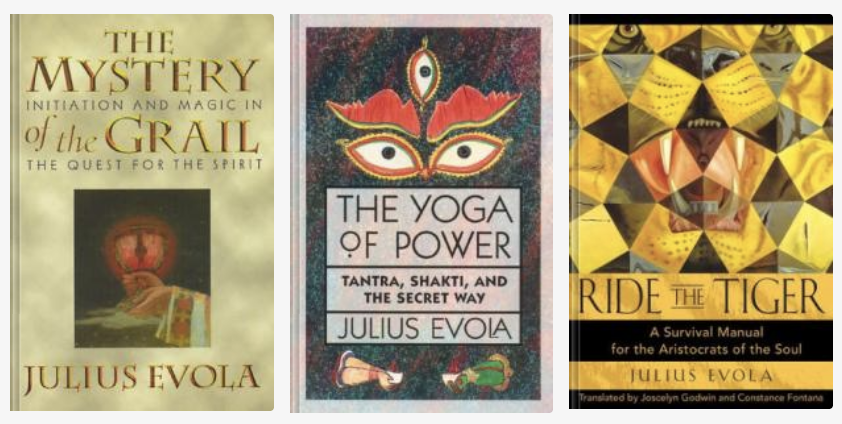
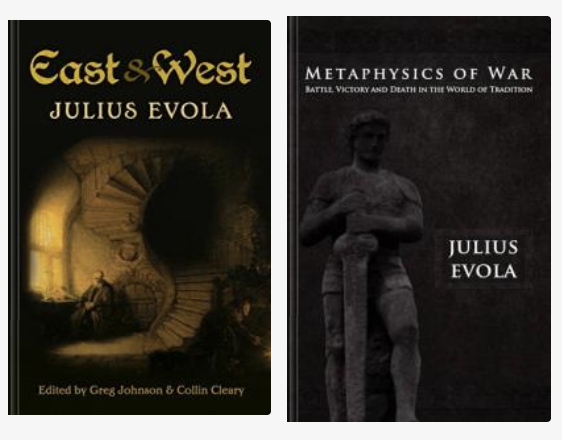
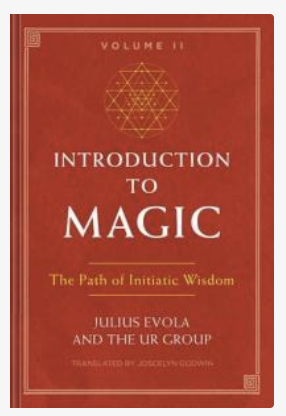
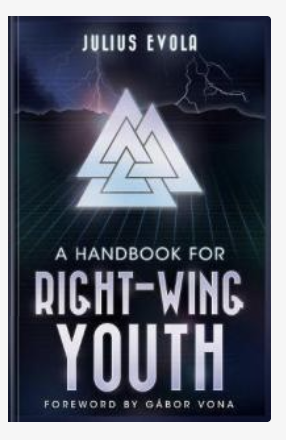
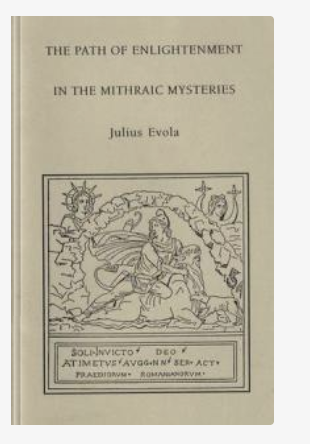

“superiority is not based upon power, but power upon superiority. To need ‘power’ is impotence.”
Evola, Man as Power (1925)
Every traditional society is characterized by the presence of beings who, by virtue of the innate or acquired superiority over the human condition, embody within the temporal order the living and efficacious presence of a power that comes from above. One of these types of beings is the pontifex . . . Pontifex means “builder of bridges” . . . connecting the natural and supernatural dimensions. . . . In the world of Tradition the most important foundation of authority and of the right of kings and chiefs, and the reason why they were obeyed, feared and venerated, was essentially their transcendent and nonhuman quality”
Evola, Revolt against the Modern World, 7
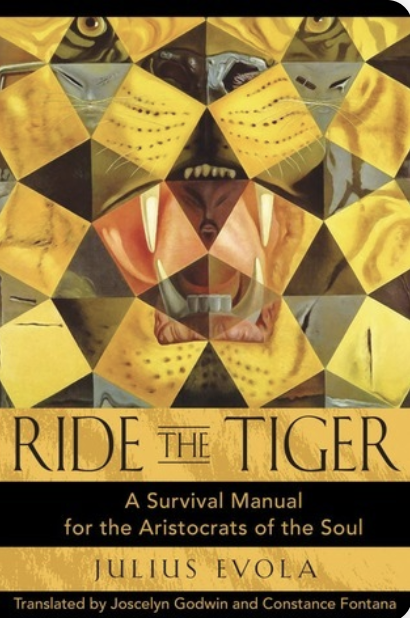
Notes
Sheehan, Thomas. 1988. “Diventare Dio: Julius Vola and the Metaphysics of Fascism,” in Nietzsche in Italy, ed. Thomas Harrison, 279-292. Stanford: Anna Libri.
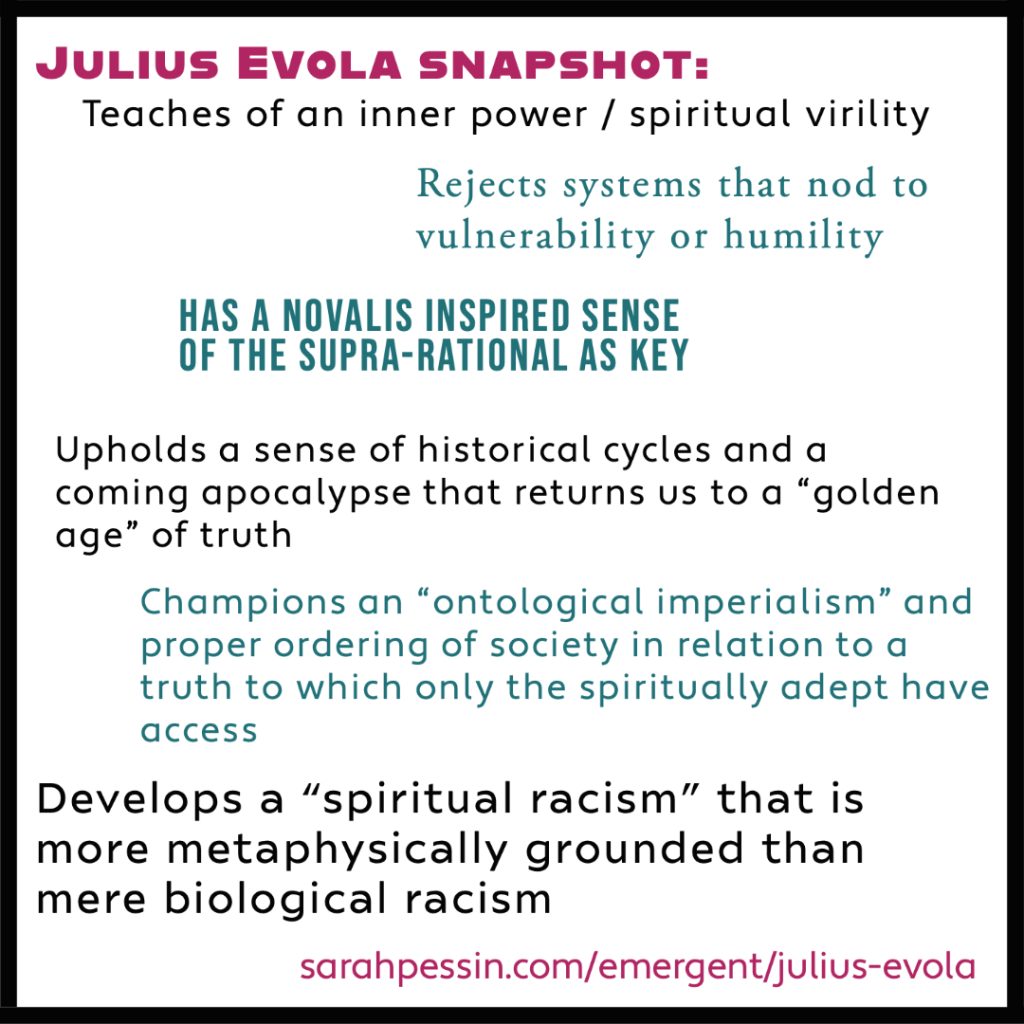
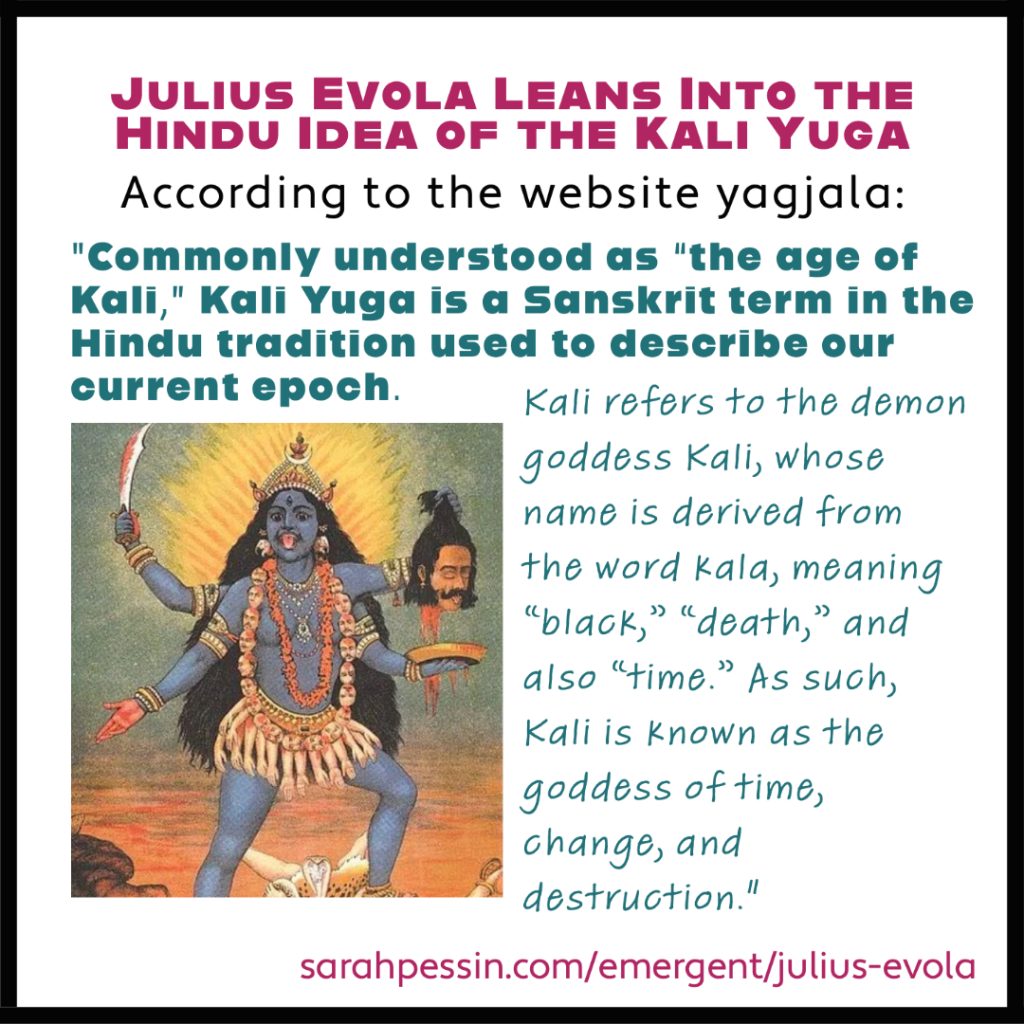
Hakl, H. Thomas and Godwin, Joscelyn. 2019. “Julius Evola and Tradition,” in Key Thinkers of the Radical Right: Behind the New Threat to Liberal Democracy, edited by Mark Sedgwick, 54-70. New York, 2019; Oxford Academic.
- Julius Evola (1898-1974) / Rome
- Anti-democracy / anti-liberal thinker of the New Right; sacred-led politics; cosmic hierarchies of people (“spiritual racism”–an Evola notion Mussolini rather liked and tried to implement in opposition to Nazi biological racism; people weren’t into it so he pulled that strategy back)
- Myth and myth-drenched writing style (a la Tolkien; note: “Campo Hobbit” students looking to find New Right ideas from Evola-admirers like Marco Tarchi)
- “Tradition” in cosmic sense of a single universal truth
- spiritual-monarchical empire and priest-king, good; democracy, bad
- ends in apolitical Stoicism (Ride the Tiger: A Survival Manual for the Aristocrats of the Soul, 1961)
- books on inner transformation, eastern and occult spirituality, magic, war, power, fascism
- Embraces values of virility, purity, aggression, “absolute and resounding certainty,” truth; “inner conviction” as absolute self-sufficiency (Carlo Michelstaedter); “magical idealism” (Novalis); absolute power, knowledge, freedom; follow your inner truth and do not back down or question yourself; warrior mode (sense of self in Kshatriya caste); occult ritual and deification to influence practical politics
- Influenced by reading Nietzsche: leads him to praise aggressive modes and to revile humility, moralism, conformism, egalitarian/democratic approaches; against popularism
- Views self as in touch with the transcendent (v. the naturalistic approach of at least some readings of Nietzsche’s übermensch); from Eckhart, gets the sense that one should act “without asking why” as long as it’s clear within (which is your connection to the transcendent); pure inner truth–with Eckhart’s sense of being and God being one, and hence a sense of self as God (–>themes of deification of self in Evola); anti technology and modernity; anti-equality, anti-democracy; priest-king (let the one connected to esoteric divine truth lead…)
- Anti-women and anti-Judaism (as feminine, as essence of materialist modernity) from Otto Weininger | Positive support for Orthodox Jews and for Jewish mysticism (including Gershom Scholem) | [Note: That said, he is a virulent antisemite as explained by Staudenmaier and others; see the ‘Evola and Racism’ fact sheet here]
- Buddhism; Taoism; Tantra; Hinduism (re: warrior); Eastern Spirituality; Meister Eckhart; Pythagoreanism; Free Masonry; Roman paganism; alchemy; magic
- Raised Catholic; turned against it — but in later writings find a vestige of positive ‘sun’ energy (v. weak ‘moon’ energy) in medieval Catholic sacred imperialism and power; in contrast, he lambasts other forms of Christianity, Judaism, and modernity itself in all its emphasis on progress, equality, and collectivism–as mired in ‘dark’ energies of humility which he views as anti-divine. Ultimately, though, anti-Catholic.
- Psychedelics (i.e.: he took ether)
- Mountaineering
- Art, painting – it comes from a “higher consciousness”; aligns for a while with Italian Futurists (liked their anti bourgeois stance; then leaves them behind because of their insufficient inner focus, too much splash, sensualism, and nationalism); aligns with Dadaism–Far Eastern sense of identity of the I and the non-I; leaves art behind in 1922 at age 24 (*Note: His paintings are in important museum collections)
- “Magical Idealism” related to finding one’s transcendent inner truth; term is in Novalis (Romanticism); roots his ideas of this ‘philosophy and far east’ period (1923-27) German Idealism of Fichte and Schelling; Plato
- Man as Power (1925): moves from philosophical the ‘magical’ period where he seeks transcendence; sense of “power” vs. “force” or “violence” — i.e. the good kind (‘power’) works ‘magically’ from inside yourself; “superiority is not based upon power, but power upon superiority. To need ‘power’ is impotence.”
- “Group of Ur” co-founder with Arturo Reghini; initiation + deification | unbroken consciousness from life to death | seeks to magically influence Mussolini in relation to their push towards pagan–vs. Christian–Roman energies
- “Integral Tradition” (a timeless universal set of truths of divine origin | cannot be questioned, never changes, and sets absolute norms) v. simple traditionalism of old customs and ways (1920s from Reghini re: French esotericism of René Guénon) –> use occult ritual and deification to influence politics: Revolt Against the Modern World (part 1 is on integral tradition; part 2 is an occult history of the world)
- Integral Tradition vs. modern technology
- Integral Tradition vs. modernity’s focus on equality and progress
- “Every traditional society is characterized by the presence of beings who, by virtue of the innate or acquired superiority over the human condition, embody within the temporal order the living and efficacious presence of a power that comes from above. One of these types of beings is the pontifex . . . Pontifex means “builder of bridges” . . . connecting the natural and supernatural dimensions. . . . In the world of Tradition the most important foundation of authority and of the right of kings and chiefs, and the reason why they were obeyed, feared and venerated, was essentially their transcendent and nonhuman quality” (Evola, Revolt against the Modern World, 7)
- World history as devolution: Cosmo-historical musings on solar (powerful, good) vs. lunar (feminine, humble, receptive, bad) energies and cycles in relation to better and worse civilizations; weak/bad energies culminate in the terrible ‘collectivism/humility/democracy/equality’ energies of modernity which block the Truth–and its legions– from leading
- “Organic State” — in Men Among the Ruins (1952)
- Friends with Mircea Eliade who embraced some of Evola’s conservative ideas
- Interactions with Carl Schmitt–but rejects Schmitt for his Catholicism; they are linked by antiliberal political thought of Juan Donoso Cortés
- Translates Spengler’s Decline of the West into Italian in 1957; clarifies that it did not influence his thinking; criticizes it for lacking a robust metaphysics
- Translator between Mussolini and Hitler.
- The Metaphysics of Sex (1958): sex as a key way modern humans can access the transcendent.

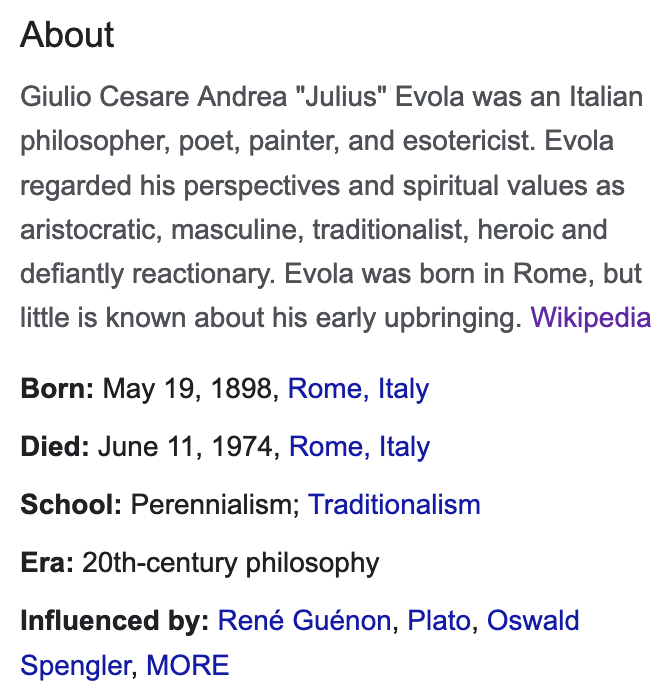
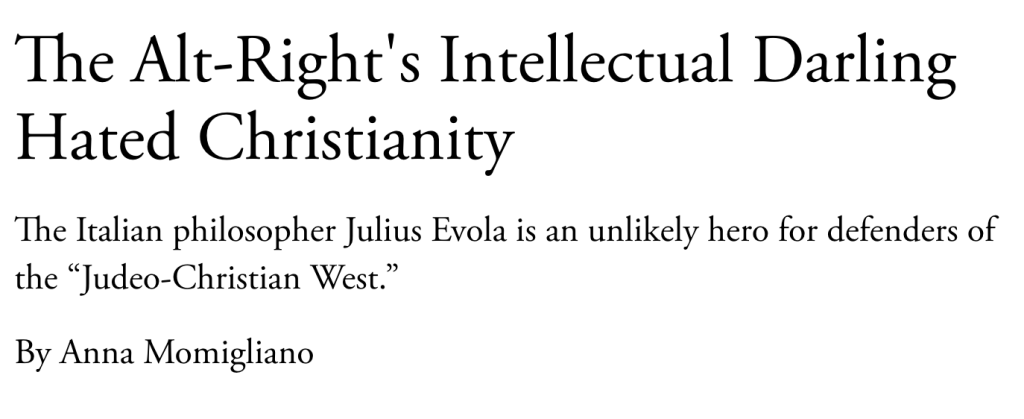


“How Julius Evola Became the Internet’s Favorite Fascist,” by Morgan Jones | Jacobin, December 2022
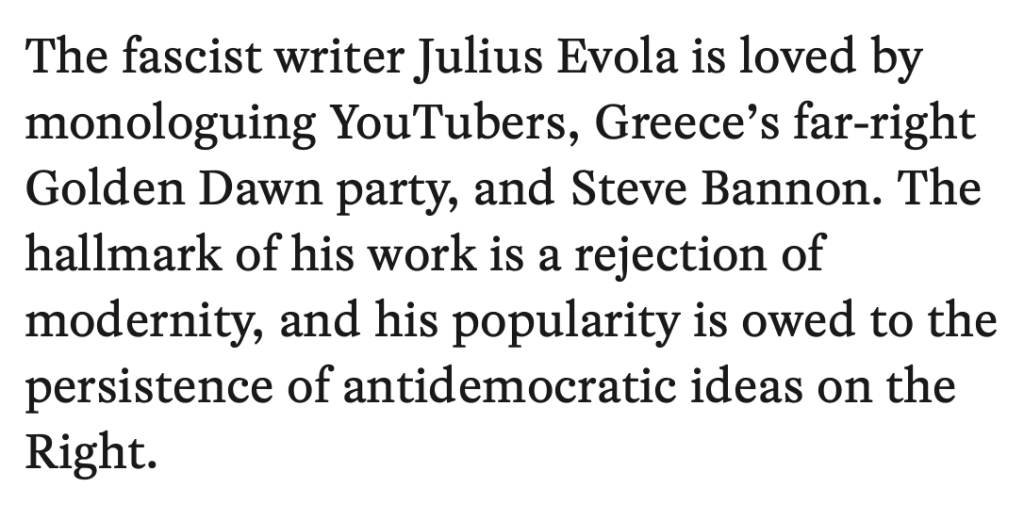
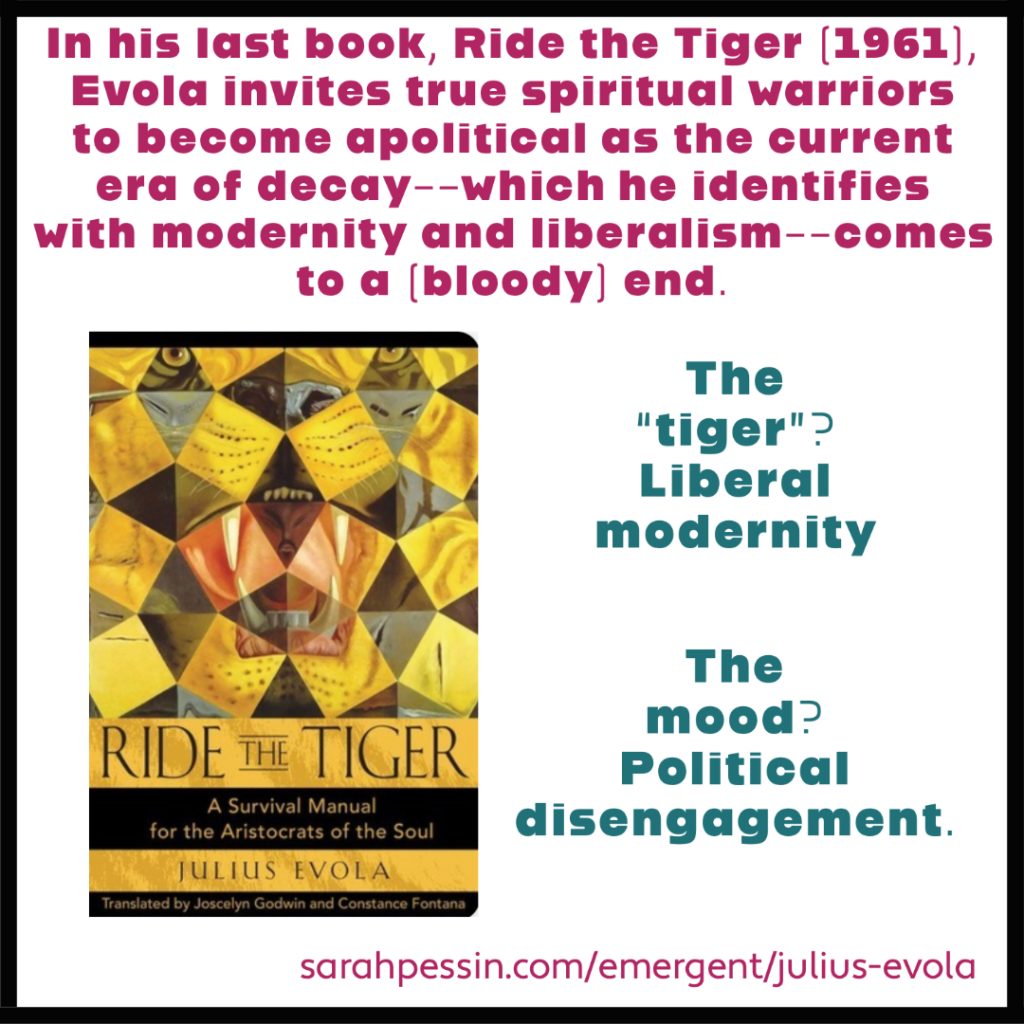
Is Evola Racist? In a word: Hell yes.
Find the Fact Sheet here:
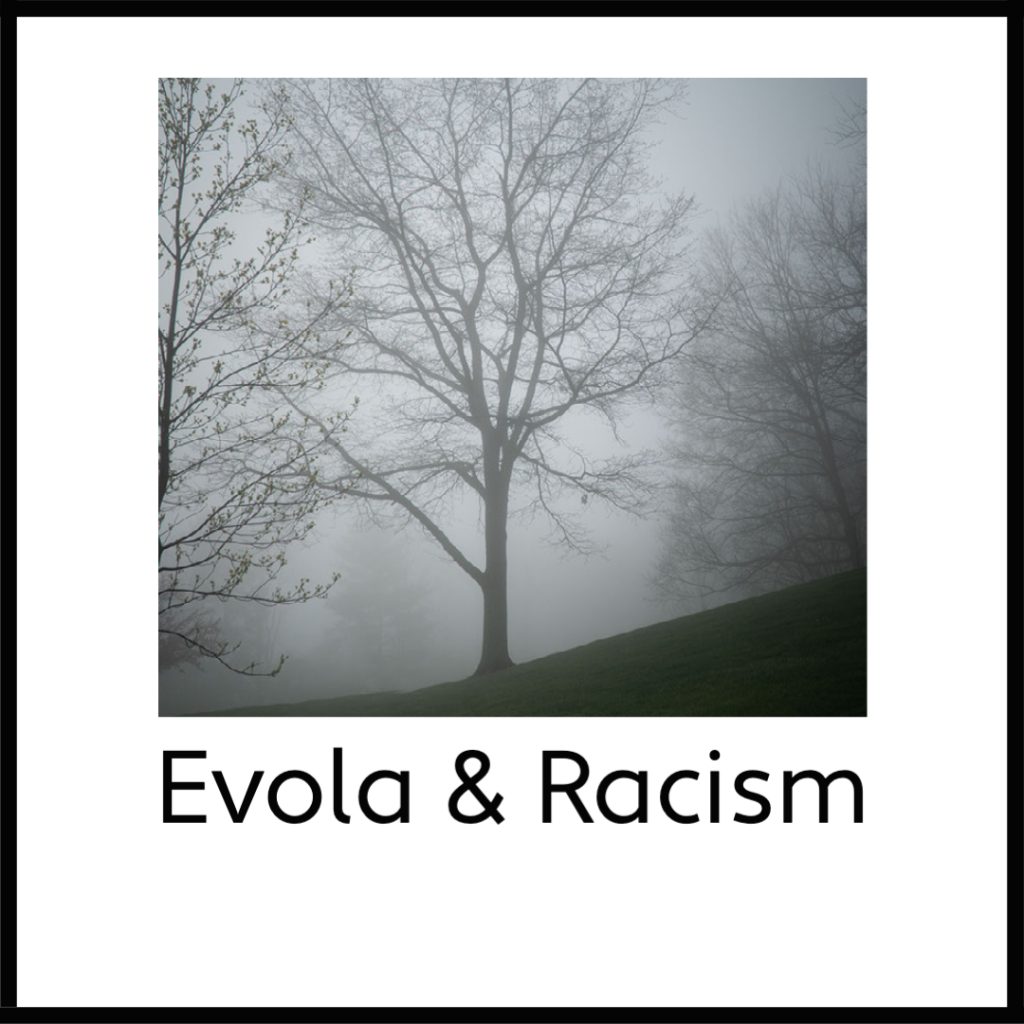
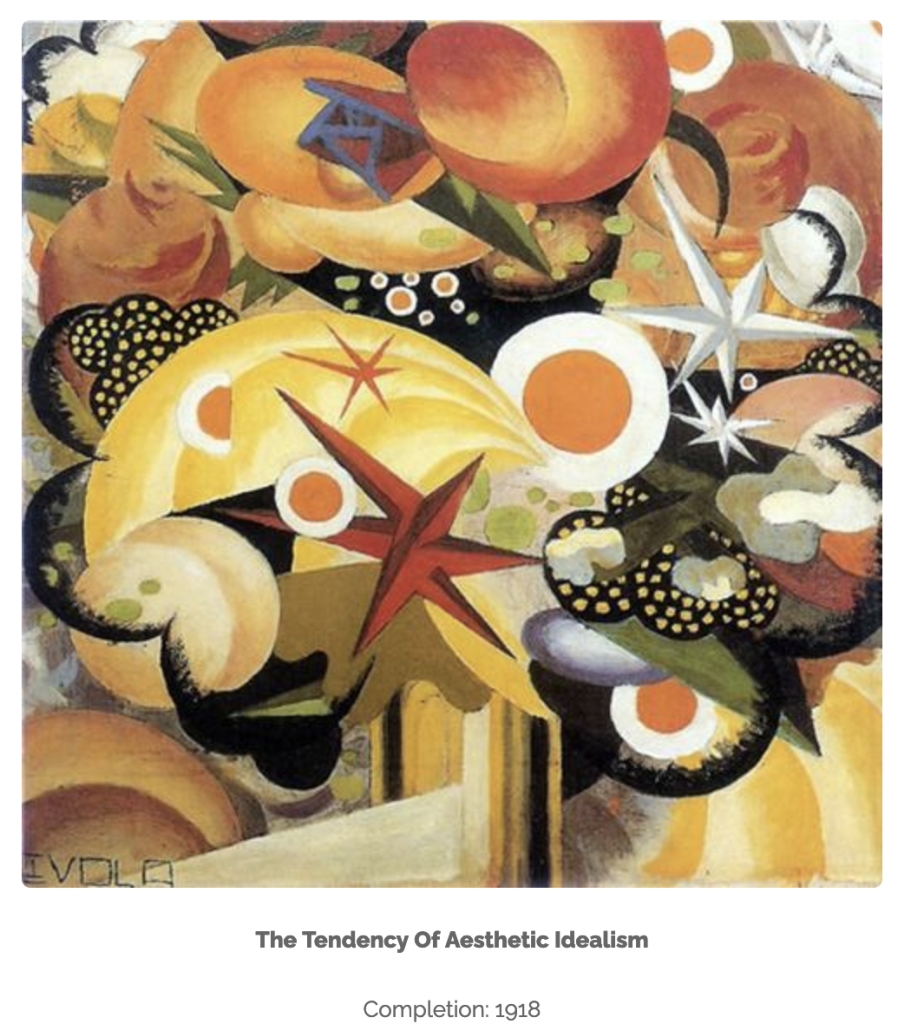
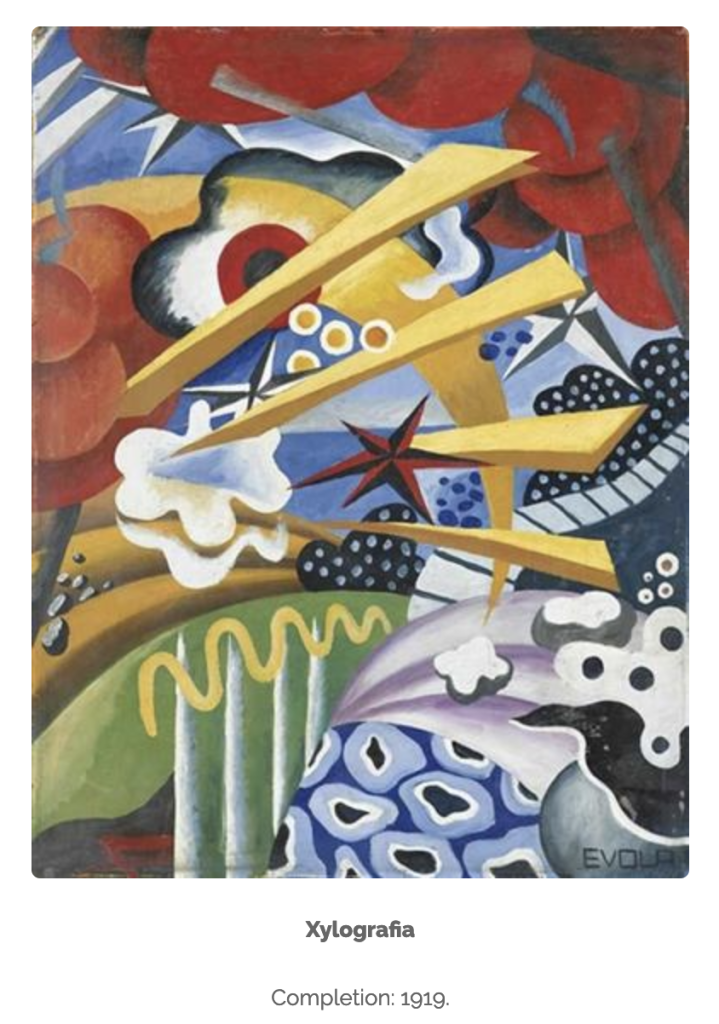
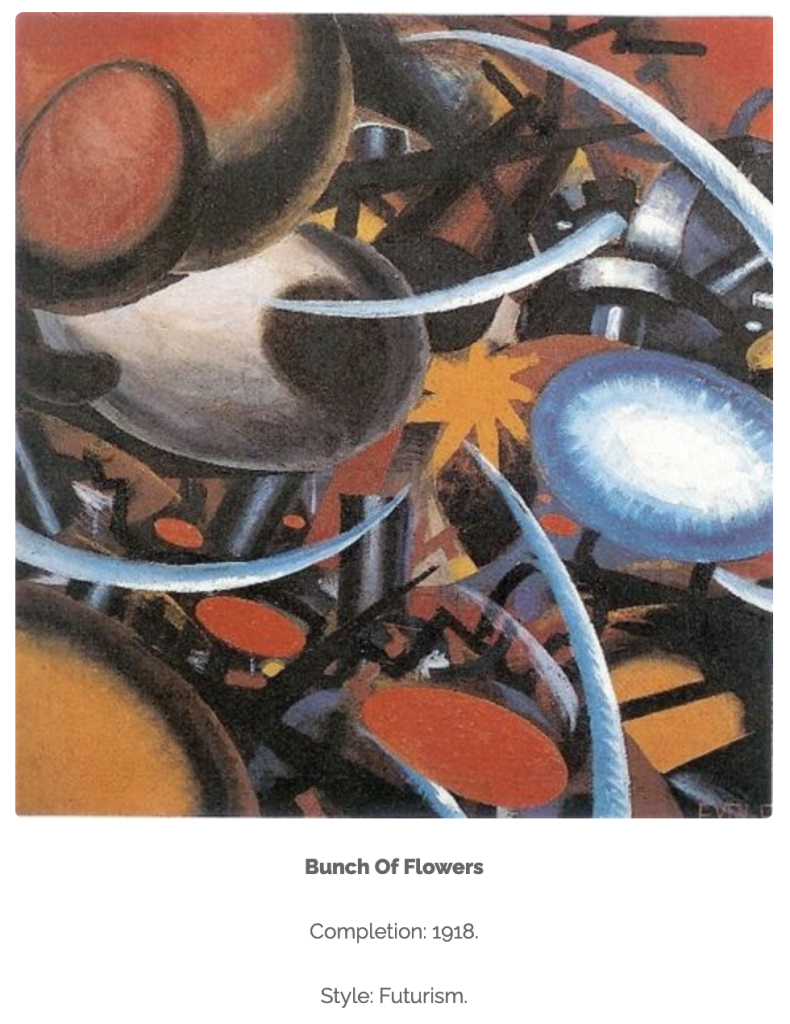
Ferraresi, Franco. 1987. “Julius Evola: Tradition, Reaction, And the Radical Right,” European Journal of Sociology 28(1): 107-151.
- “Evola’s doctrine can be considered as one of the most radical, consistent, rigorous expressions of anti-equalitarian, anti-liberal, anti-democratic and anti-popular thought in the twentieth century.” (109)
- Ferraresi refers to Evola’s “disingenuous claim to have been neither fascist nor anti-fascist” (107)
- Evola upheld an “imperial paganism” + occultism + fascination with the East at odds with Italian Fascist work with Catholic Church
- Yoga, Tantrism, Taoism, Hinduism (109) | emphasis on detachment, impassibility, reject outside world, find inner transcendence
- Curated the culture page of an influential fascist newspaper for over 10 years; he addressed “spiritual problems in Fascist ethics” and showcased Traditionalists like René Guénon (107)
- He did not join any party; but in 50s in Italy’s neo-Fascist party, one sub-group was called ‘spiritualista–evoliana‘ (108)
- Nietzschean nihilism as taken up by German conservatives of the day: sense of “confrontation of man with a world of ruins, where values have crumbled and conventional morals are no longer compelling” (110)
- Guenon, Bachofen: Tradition
- Romantic anti-enlightenment pro-pre-modern thought
- Unlike modernity’s sense of Progress, Evola sees a story of Regress as we fall further away from a Golden Age | see connection to ‘cycles of history’ approaches
.
Sheehan, Thomas. 1981. “Myth and Violence: The Fascism of Julius Evola and Alain de Benoist,” Social Research 48(1) [On Violence: Paradoxes and Antinomies; Spring]: 45-73
- Fascism does not necessarily imply terrorism, but for a terrorist who is moved by fascist ideals, “what society calls violence is for him either self-defence (resistance against the unnatural) or therapeutic (restoration of the essen- tial) or maieutic (helping give birth to the natural and essential)” (Sheehan 1981, 48)
